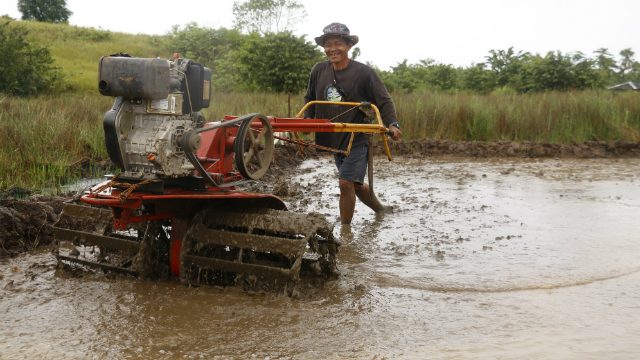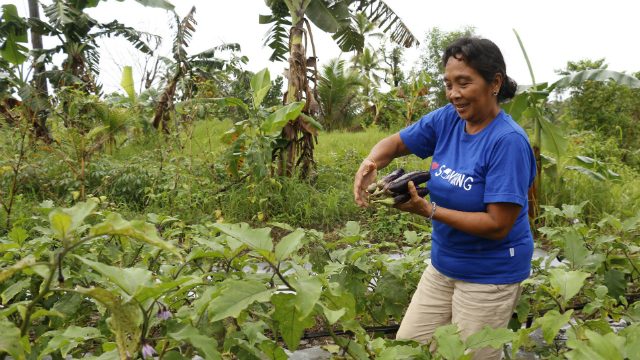SUMMARY
This is AI generated summarization, which may have errors. For context, always refer to the full article.

EASTERN SAMAR, Philippines – Three years after Super Typhoon Yolanda (international name Haiyan), coconut farmers in Eastern Visayas have improved their farming practices and engaged in diversified livelihood to adapt to the “new normal.”
Euqituo Casiroman, a father of 11 and a coconut farmer for 30 years, is one of the farmers in Balangiga, Eastern Samar who engages in diversified livelihood after being affected by the devastation brought by Yolanda.
“Three years ago, my family was left homeless after our house was washed out and the coconut farm I am maintaining was destroyed by Typhoon Yolanda. Everything was gone,” 56-year-old Euqituo recalled.
He added: “We used to be very dependent on coconut. But after Yolanda and other typhoons that came one after another, we were convinced that we need to find other means to earn.”
Coconuts are one of the most important crops in the Philippines, which is the second largest producer in the world with 26.6% of global production. Eastern Visayas is one of the main producers in the country.
According to the Philippine Coconut Authority, in Eastern Visayas alone, 33 million coconut trees were damaged and destroyed by Yolanda, affecting more than a million coconut farmers.
Diversifying livelihood
To help farmers affected by Yolanda, Plan International has had helped farmers like Eutiquo improve their livelihood to be resilient and to have food security when future typhoons come.
“As part of our initiatives on disaster preparedness, Plan International, along with the Department of Agriculture, does not just restore what was gone. We improve farmers’ farming practices and teach them to diversify their livelihood to be resilient from climate change and typhoons,” Raul Itong, Plan International livelihood specialist, said.
Maria, Eutiquo’s wife, has to help Eutiquo in the farm.
“We planted coconuts again but it will take us 6 to 8 years to be back in production. We can’t wait for that long as we have children to feed and to send to school,” Maria, 54, said.
Maria attended trainings on how to diversify their farming. “We learned our lesson. After Typhoon Yolanda, another typhoon came and it destroyed what we planted. So we need to diversify and find ways to earn,” she noted.
She added: “Now, we maximize the vacant lot in the farm. We plant fruit trees and made a pond to raise fish. We also make our own fertilizer, learning from the trainings I attended. We do not need to buy our fertilizers.”
The family has an organic vegetable garden and planted root crops right across their house. They sell their vegetable produce at the market.
When it’s rainy season, Euqituo gets paid for plowing the rice field of others. “We need to maximize the rainy season since our rice are rain fed,” he added.

Plan International provided farm inputs and facilities to farmers association which Maria and Eutiquo are a part of. “The community that we are part of now has rice mill and tractors. The facilities have been so helpful to us. It saves us a lot of money since we no longer spend to transport our produce,” she said.
In the past three years, more than 1.3 million people or 308, 000 families had been reached by Plan International interventions. More than 700,000 of which have benefitted from the organization’s livelihood intervention. Among those who benefited are farmers, fisher folks and youth who belong to the vulnerable and marginalized groups.
Maria concluded: “I believe, we are now resilient farmers. When another typhoon comes, we will no longer have a hard time coping. My children will no longer have to stop schooling. And I think it goes with my neighbors as well who somehow have the same experience with what our family had gone through.” – Rappler.com
Maryann Zamora is the communications officer of Plan International.
Add a comment
How does this make you feel?
There are no comments yet. Add your comment to start the conversation.